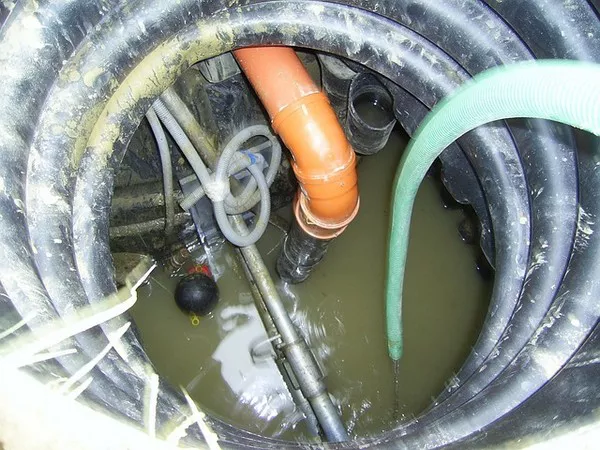A foul odor wafting through your bathroom can be a distressing experience. One common and often perplexing issue that homeowners face is the presence of a sewer gas smell in their bathroom. This unpleasant odor can be not only unpleasant but also a sign of underlying plumbing problems that require immediate attention. In this article, we will delve into the various factors that can cause a sewer gas smell in the bathroom and explore the steps you can take to diagnose and resolve this issue.
Understanding Sewer Gas
Before we delve into the causes of sewer gas odors in the bathroom, it’s important to understand what sewer gas is. Sewer gas is a mixture of noxious gases that includes hydrogen sulfide, methane, ammonia, and various other organic compounds. These gases can be produced by decomposing organic matter, and they are typically found in sewer systems and septic tanks.
When a sewer gas smell is present in your bathroom, it means that these gases are escaping from the plumbing system and entering your living space. This not only creates an unpleasant odor but can also pose health risks if left unaddressed.
Common Causes of Sewer Gas Smell in the Bathroom
Dried Out P-Traps: One of the most common causes of sewer gas odors in the bathroom is dried out P-traps. P-traps are U-shaped pipes beneath sinks, showers, and toilets that are designed to hold water and create a seal. This seal prevents sewer gases from entering your home. If a fixture is not used regularly, the water in the P-trap can evaporate, breaking the seal and allowing sewer gas to escape into the bathroom.
Faulty Ventilation: Proper ventilation is crucial for your plumbing system. Vent pipes allow air to flow through the drainage system, preventing the buildup of gases and maintaining water flow. If these vent pipes become blocked or damaged, it can lead to sewer gas escaping into your bathroom.
Leaking or Damaged Plumbing: Any cracks, leaks, or damage in your plumbing system can result in sewer gas odors. Even a small crack in a sewer line or a damaged wax seal under a toilet can allow gases to escape.
Blocked Drains: Blocked drains can lead to water backing up in the plumbing system. This can force sewer gases to escape through other fixtures in the bathroom, causing odors.
Clogged or Faulty Vents: The vents on your roof or exterior walls play a crucial role in maintaining the balance of air pressure in your plumbing system. If these vents become clogged or damaged, it can lead to negative pressure, which can draw sewer gases into your bathroom.
Sewer System Issues: Sometimes, the problem may not originate within your home but in the municipal sewer system itself. Blockages or leaks in the public sewer lines can lead to sewer gas odors being pushed back into your home.
Sewer Trap Issues: In some cases, the sewer trap, which is a larger version of a P-trap located outside your home, can become damaged or compromised. This can allow sewer gases to enter your property.
Diagnosing the Issue
Identifying the specific cause of a sewer gas smell in your bathroom can be challenging. Here are steps you can take to diagnose the issue:
Check P-Traps: Ensure that all P-traps in your bathroom fixtures have water in them. If not, run water through the affected fixture to refill the trap and create a seal.
Inspect Ventilation: Examine the ventilation system for any visible blockages or damage. Clear any debris from vent openings and inspect vent pipes for cracks or disconnections.
Examine Plumbing: Inspect the plumbing system for leaks, cracks, or damaged seals. Pay close attention to the base of toilets and around drains and pipes.
Clean Drains: If you suspect a blocked drain, use a drain cleaner or call a professional plumber to clear the blockage.
Roof or Wall Vents: Inspect the roof or wall vents for any obstructions or damage. Ensure they are clear of debris and functioning correctly.
Consult Professionals: If you’re unable to identify the source of the odor or if the issue persists, it’s advisable to consult a professional plumber who can conduct a thorough inspection and recommend the necessary repairs.
Resolving the Issue
Once you’ve identified the cause of the sewer gas smell, you can take appropriate steps to resolve it:
Refill P-Traps: Regularly use all bathroom fixtures to keep P-traps filled with water and maintain proper seals.
Repair Plumbing: Address any leaks, cracks, or damaged plumbing components promptly. This may involve replacing wax seals, fixing cracked pipes, or replacing damaged fixtures.
Clear Blockages: If you find blockages in the drains or ventilation system, clear them using appropriate methods or seek professional help.
Ventilation Maintenance: Maintain proper ventilation by keeping vent pipes clear and in good condition. Regularly inspect roof or wall vents and clean them as needed.
Professional Assistance: For complex issues or those related to the municipal sewer system, seek the assistance of a qualified plumber or municipal authorities.
Conclusion
A sewer gas smell in your bathroom is not only unpleasant but also a sign of potential plumbing problems that require attention. By understanding the common causes of sewer gas odors and following the steps for diagnosis and resolution outlined in this article, you can maintain a healthy and odor-free bathroom environment. Regular maintenance and prompt repairs are key to preventing sewer gas odors from becoming a recurring issue in your home.

